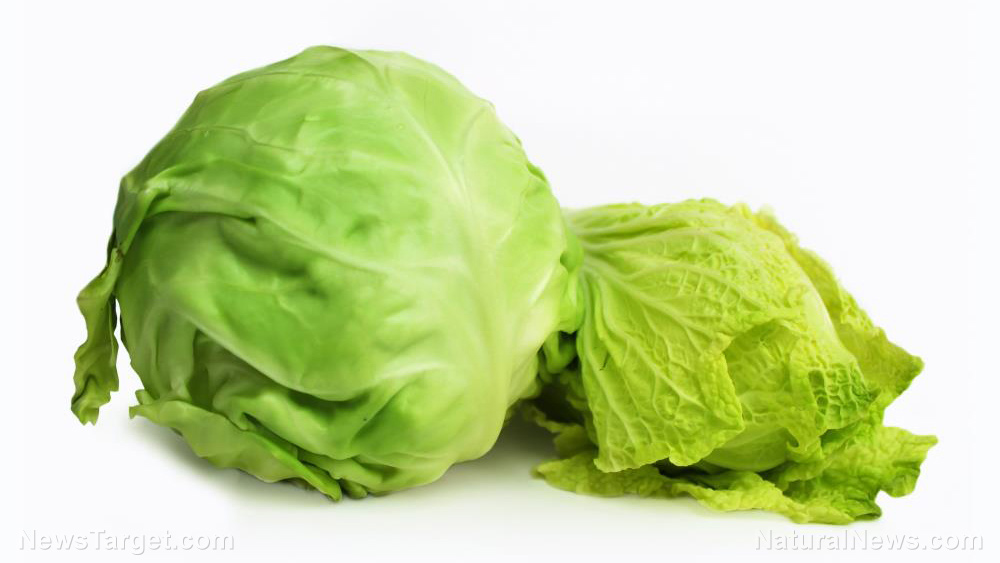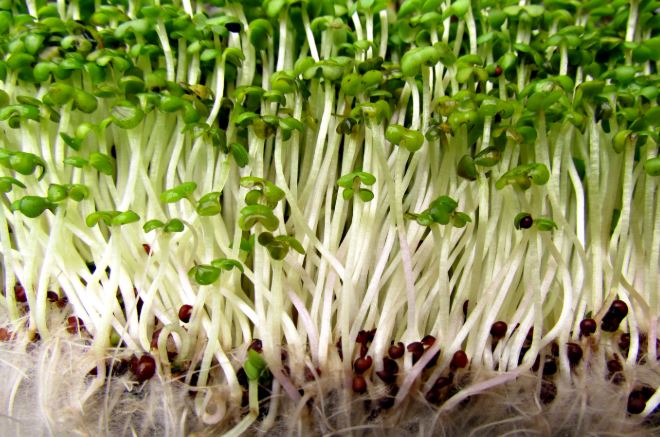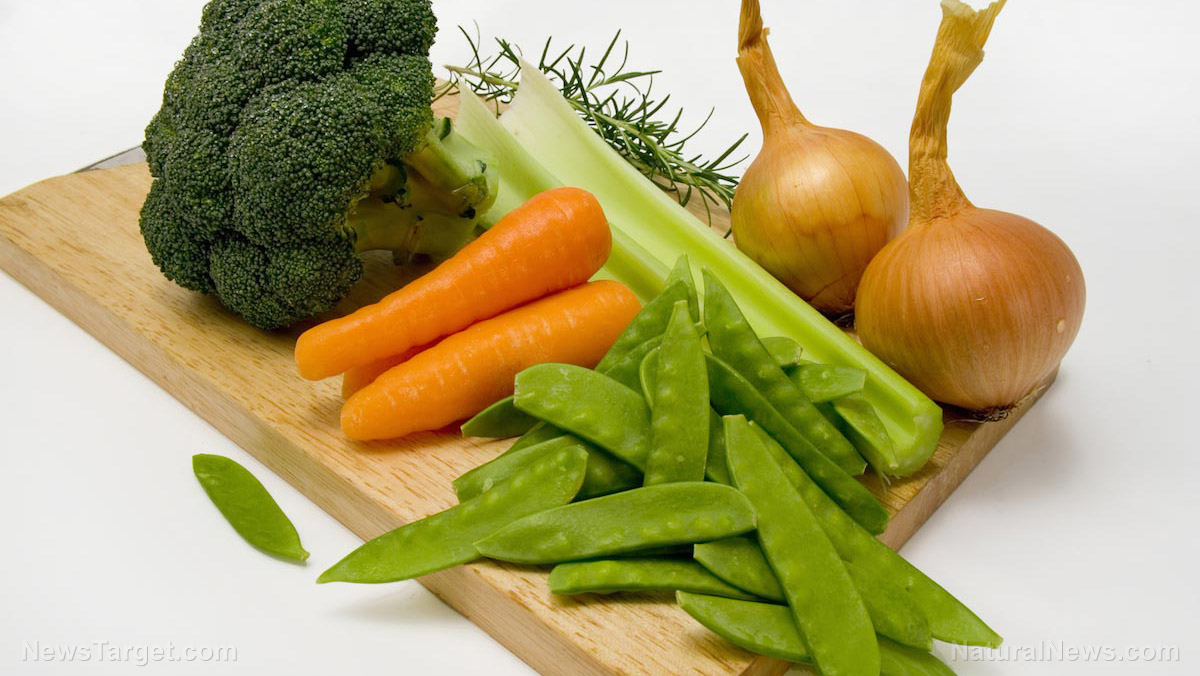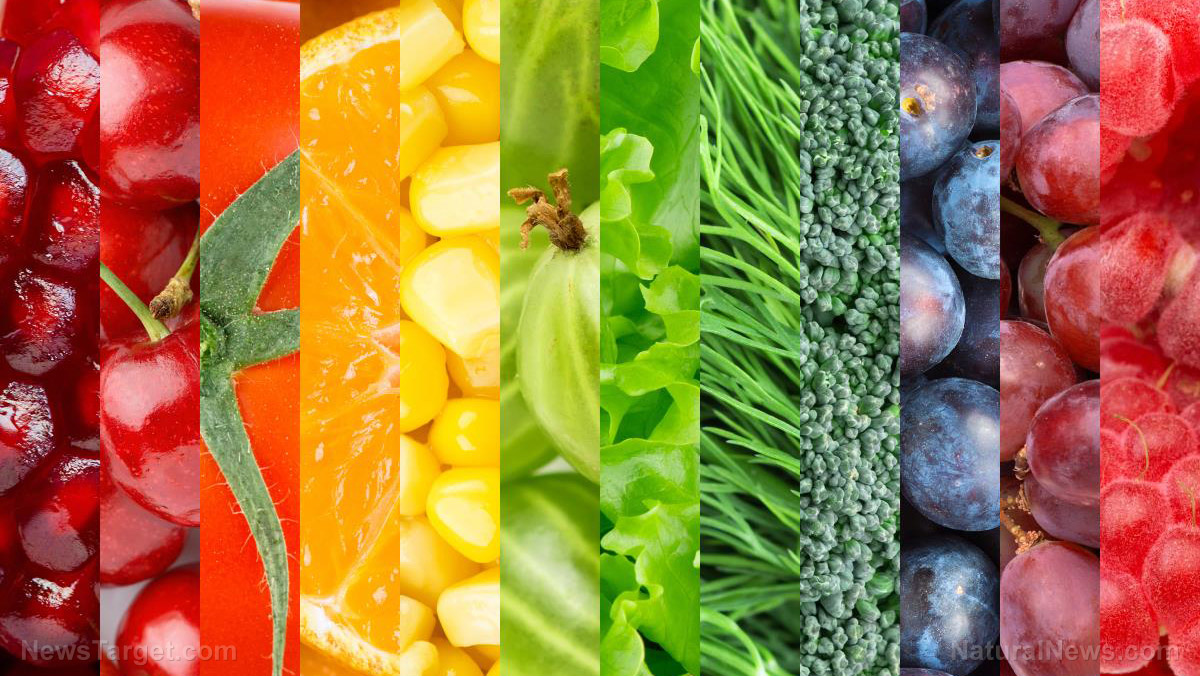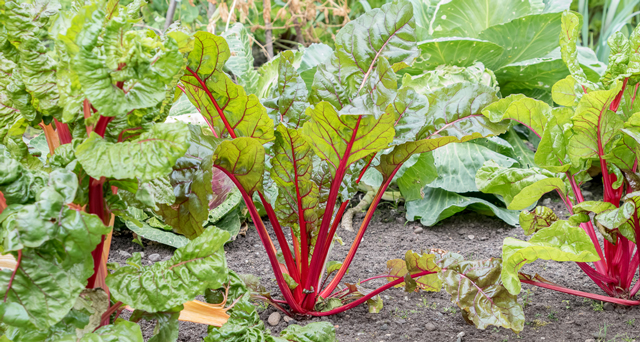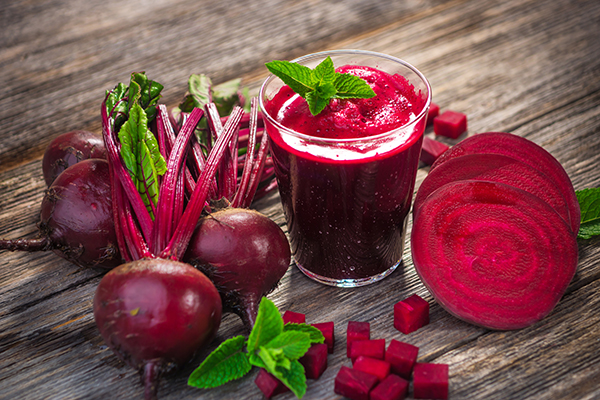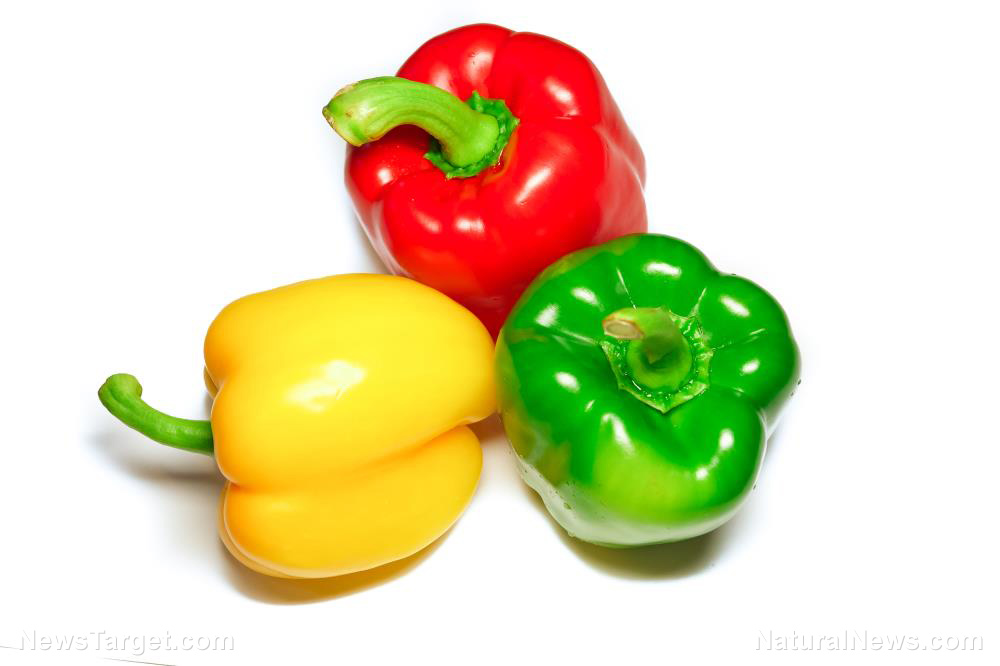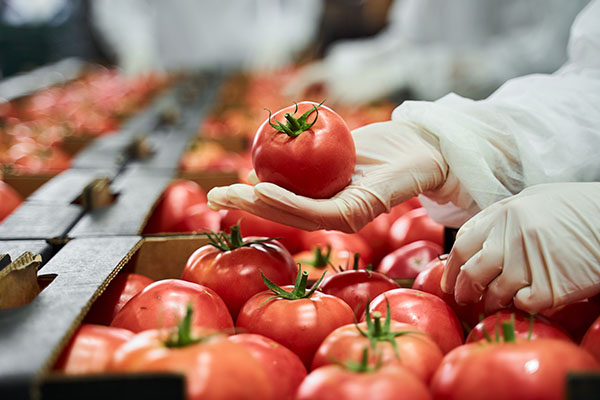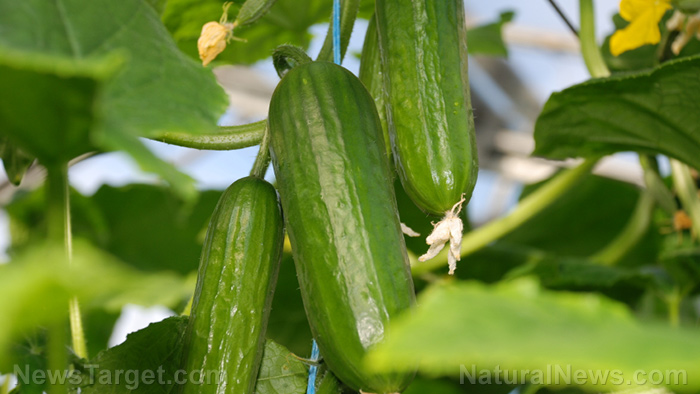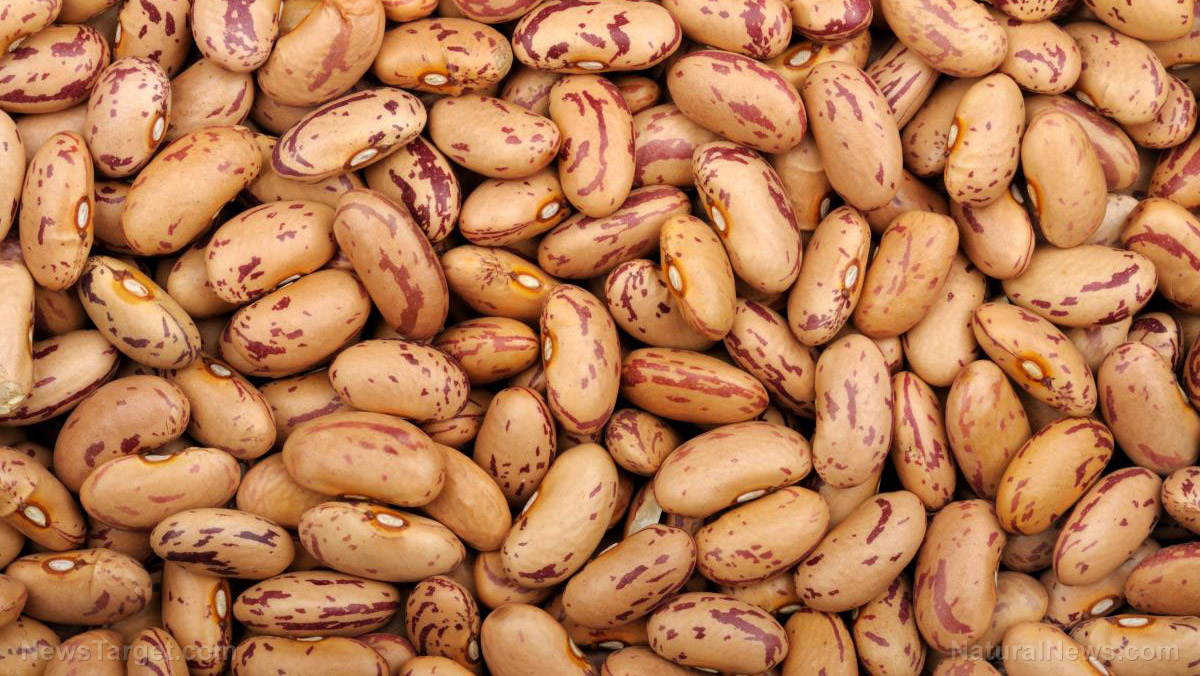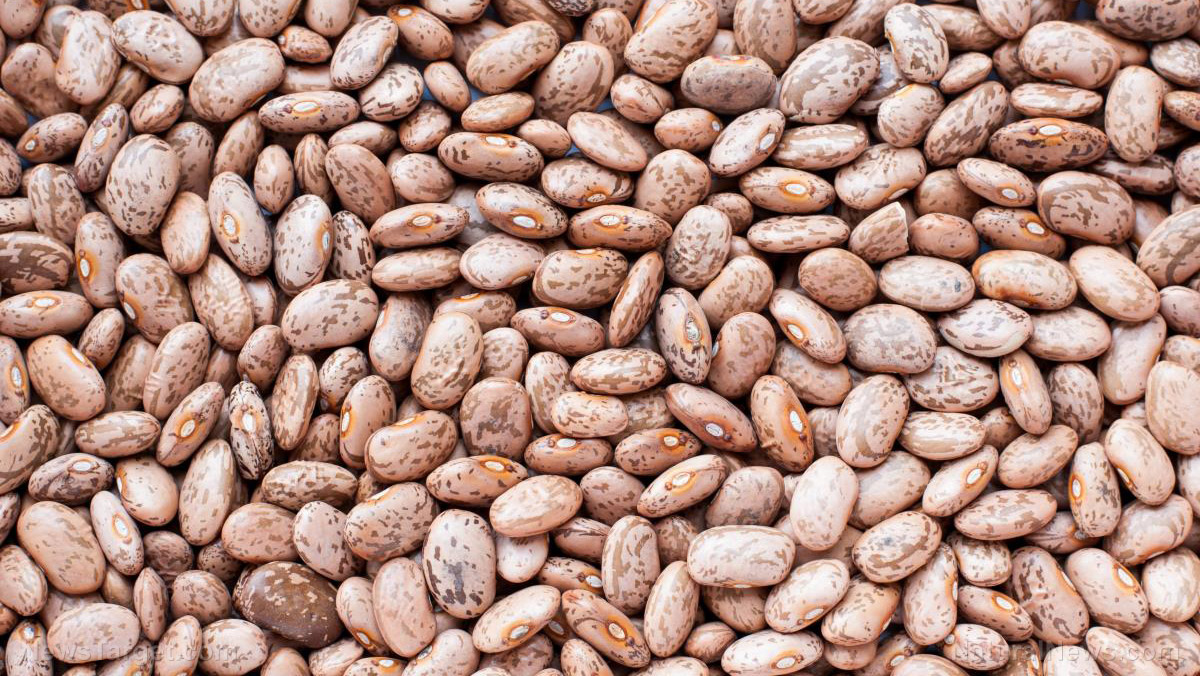Spinach: The nutrient-dense superfood you need in your diet
06/28/2025 / By Laura Harris
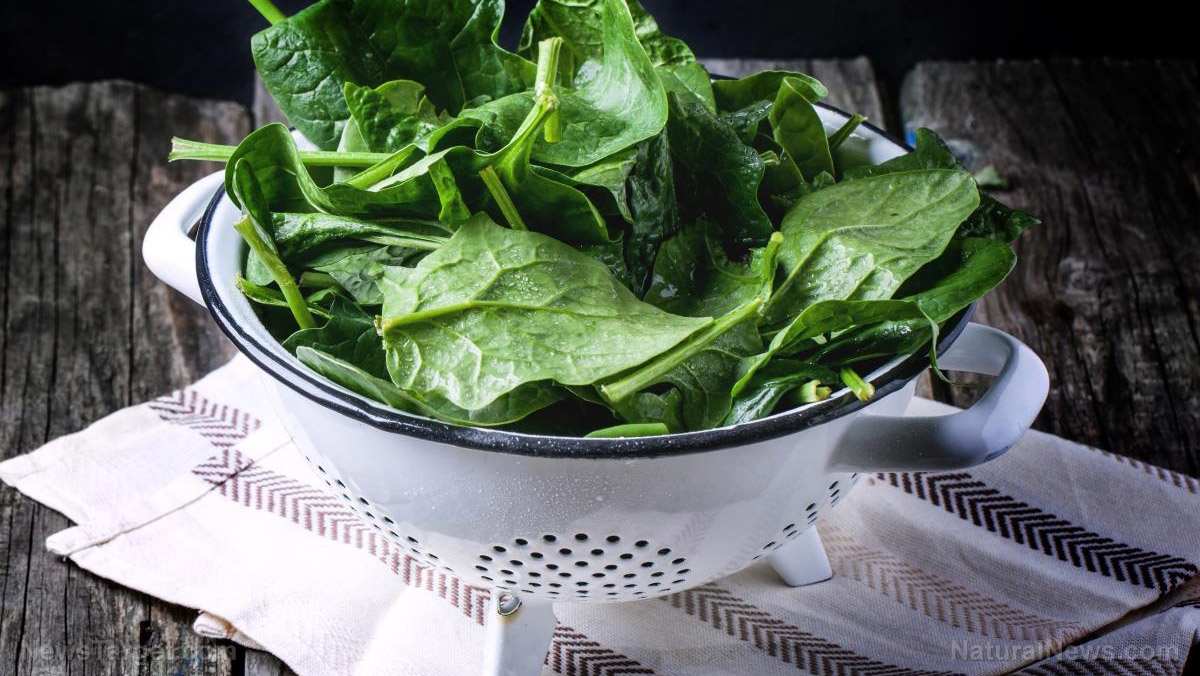
- Spinach originated in ancient Persia and spread to China, Europe and beyond, becoming a staple in Mediterranean and global cuisine.
- Spinach is rich in vitamins (K, A, C and folate), minerals (iron, magnesium and calcium) and antioxidants (lutein, zeaxanthin, quercetin and beta-carotene), making it a bona fide superfood.
- Regular consumption of spinach supports bone health, immunity, vision and heart health, and may reduce inflammation and oxidative stress.
- Non-organic spinach often contains high levels of pesticides and potentially toxic heavy metals. Choosing organic spinach is highly recommended to minimize exposure to these harmful chemicals.
- Spinach can be enjoyed in salads, cooked dishes, smoothies and baked goods, making it a versatile addition to a healthy diet.
Spinach (Spinacia oleracea) is more than just a leafy green – it’s a nutritional powerhouse that has been revered for centuries. Packed with vitamins, minerals and antioxidants, spinach is a nutrient-dense vegetable that supports overall health.
Spinach has a rich history that can be traced back to ancient Persia (modern-day Iran and surrounding regions). It was introduced to China in the 7th century, where it earned the nickname “Persian vegetable.” By the 12th century, spinach had made its way to Europe via the Moors in Spain and became a staple in Mediterranean cuisine.
Spinach gained widespread popularity in the Western world during the Renaissance, thanks to Catherine de’ Medici, who adored spinach and insisted it be served at every meal – hence the term “Florentine” in dishes like Eggs Florentine (spinach with poached eggs).
Today, spinach is cultivated globally, with China, the United States and Japan being some of its top producers. Spinach’s adaptability to different climates and ease of cultivation have made it a dietary staple worldwide. (Related: Health benefits of spinach to help manage general health.)
Spinach: A nutritional powerhouse
Spinach is loaded with essential nutrients, making it one of the most nutrient-dense vegetables around. Here’s a breakdown of its key nutrients and active components:
- Vitamin K – Essential for blood clotting and bone metabolism, vitamin K helps prevent osteoporosis. It also supports cardiovascular health by preventing arterial calcification.
- Vitamin A – Vitamin A promotes healthy vision, strengthens the immune system and helps maintain skin integrity by supporting healthy cell growth and repair.
- Vitamin C – This vitamin enhances immune function, aids in collagen production and acts as a potent antioxidant to combat free radicals.
- Folate (B9) – Vital for DNA synthesis and red blood cell formation, folate is especially important for pregnant women as it prevents neural tube defects.
- Iron – Iron supports oxygen transport and helps boost energy levels.
- Magnesium – This mineral helps regulate muscle and nerve function, supports energy production and helps maintain healthy blood pressure levels.
- Calcium – Calcium strengthens bones and teeth and plays a role in muscle function and nerve signaling.
- Lutein and zeaxanthin – These potent antioxidants protect the eyes from harmful blue light and help reduce the risk of age-related macular degeneration and cataracts.
- Quercetin – This beneficial phytochemical acts as an anti-inflammatory and antioxidant, potentially lowering blood pressure and reducing allergy symptoms.
- Beta-carotene – This carotenoid is converted to vitamin A by the body and supports healthy skin, immune function and vision.
- Nitrate – The nitrates in spinach help improve blood flow, reducing blood pressure and enhancing cardiovascular function.
Culinary uses of spinach
Spinach’s mild flavor and versatility make it a favorite in many cuisines. Here are some popular ways to enjoy it:
Fresh in salads
- Spinach and strawberry salad – Toss fresh spinach with strawberries, walnuts, feta and balsamic dressing.
- Greek spinach salad – Combine spinach, olives, cucumbers, tomatoes and feta with olive oil and lemon.
Cooked dishes
- Creamed spinach – A classic side dish made with garlic, cream and nutmeg.
- Saag paneer – An Indian curry with spinach and paneer cheese.
- Spinach and feta stuffed chicken – A protein-packed, flavorful meal.
Smoothies and juices
- Green detox smoothie – Blend spinach, banana, almond milk, chia seeds and ginger.
- Spinach-apple juice – Juice spinach with apples and lemon for a refreshing drink.
Baked goods
- Spinach and cheese quiche – A savory pie perfect for brunch.
- Spinach artichoke dip – A crowd-pleasing appetizer.
From its ancient origins to its modern-day superfood status, spinach remains one of the most nutrient-dense vegetables available. Whether eaten raw, cooked or blended, its health benefits are undeniable. Choose organic spinach to minimize pesticide exposure and ensure you experience its full benefits.
This story is not medical advice and is not intended to treat or cure any disease. Always consult with a qualified naturopathic physician for personalized advice about your specific health situation or concern.
Visit NaturalNews.com, an excellent resource for related articles about health and nutrition. This platform allows you to explore the world of superfoods and uncover their many health benefits.
You can also try Brighteon.ai, an AI model created by Mike Adams, also known as the Health Ranger. This model is available as a free download to be run locally and is designed to help share and decentralize knowledge. By doing so, it aims to bypass censorship and empower people with knowledge.
For a platform that champions uncensored video content and free speech, particularly for discussions on nutrition, natural medicine, ingredients and related topics, check out Brighteon.com, a website that offers a space for open dialogue and exploration of these subjects without restrictions.
Lastly, you can try Brighteon.IO and Brighteon.social, two free speech-focused social media platforms where users can openly discuss topics such as health, nutrition, ingredient safety, toxicity and related subjects without fear of censorship. These platforms aim to provide a space for unrestricted dialogue on critical issues.
Watch this video to learn the four healthy recipes you can make out of spinach to lose weight.
This video is from the Vegan Shenanigan channel on Brighteon.com.
More related stories:
Spinach extract can naturally reduce appetite and food cravings.
Fresh spinach too dangerous for children, says microbiologist.
Eat spinach for bigger muscles, better cell performance.
Sources include:
Submit a correction >>
Tagged Under:
food cures, food is medicine, food science, functional food, grocery cures, health science, ingredients, natural health, nutrients, nutrition, organics, phytonutrients, spinach, vegetables
This article may contain statements that reflect the opinion of the author
RECENT NEWS & ARTICLES
COPYRIGHT © 2017 VEGGIE NEWS

